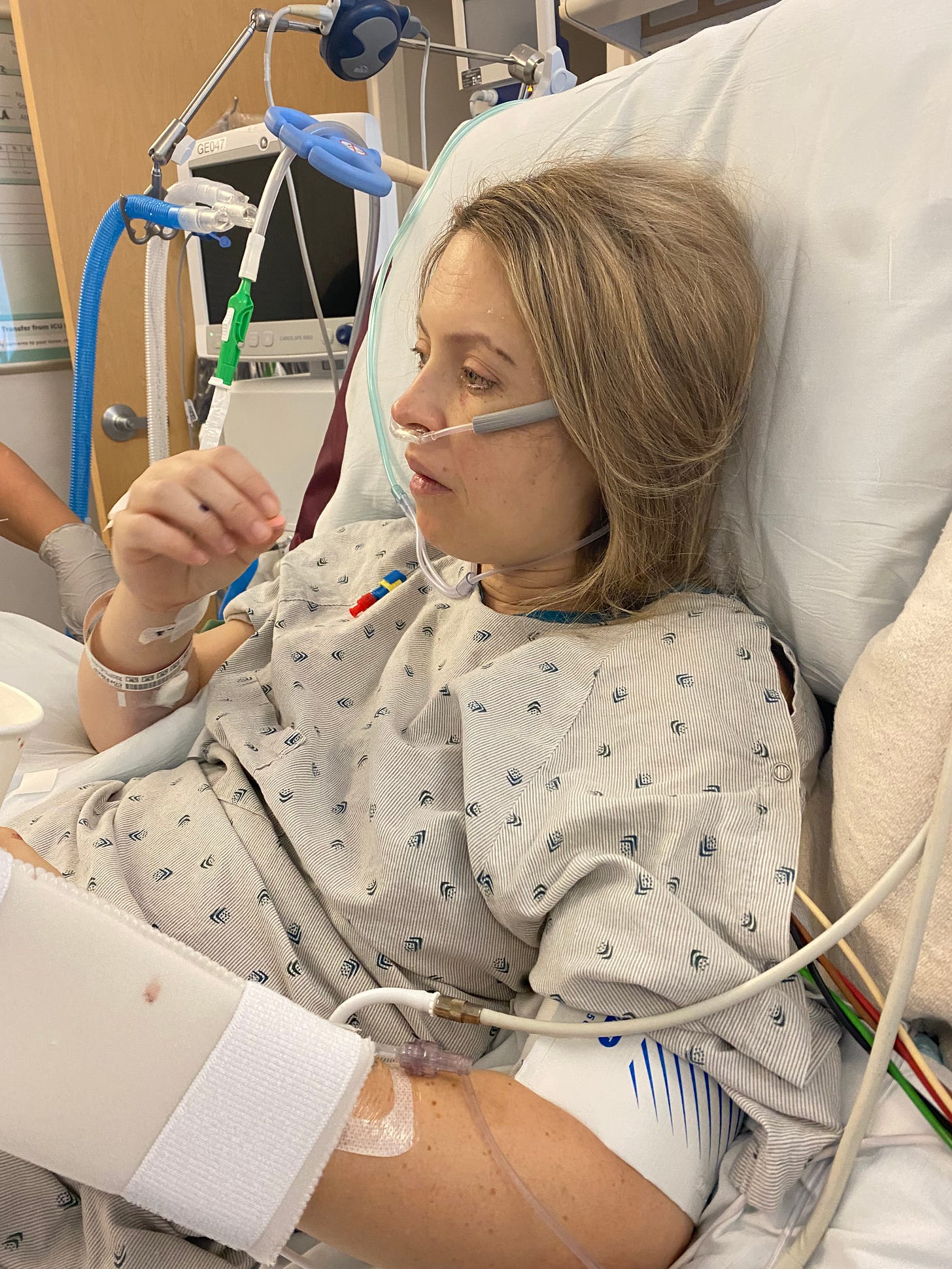Dear Readers,
Here is a part two regarding my thoughts on medical bias. I encourage folks to click on the links, but even if you don’t have time, know this bias is real and advocating for yourself is vitally important.
Substack has this new thing where if you refer Rare Disease Girl you get free months of subscription. So check it out, especially if you love it but are living on a budget. More info here: https://taylorcoffman.substack.com/leaderboard
I’d love to see someone I know on the leaderboard. (Hey mom how about you!?)
If you’re new here, this is intended to be both memoir and a practical tool to help folks who might be going through something similar or those caregivers and family supporting someone with a challenging diagnosis. I hope to include excerpts here as I write. NOTE: This is not intended to replace actual medical guidance. Please consult your doctors on your individual challenges and situations. Also names have been changed for most of my medical staff.
Bottom line, my doctors saved my life and I’m eternally grateful. However, while being at one of the world’s best hospitals, I experienced communication challenges between providers and difficulties that delayed care and added to my medical trauma.
Eerily after my final trip to the ICU, I began to feel a progressively increased shake and a stutter or a sizable gap in my thinking. I tell my newly assigned internist, “this isn’t me. Something is really wrong.” They say it was perhaps my medicine, a side effect.
Others suggest I am stressed, urging the drug Clonazepam for anxiety and panic disorder.
And then one night, I became truly stressed because suddenly everything in my perception began repeating mysteriously three times like being stuck in a horrific deja vu loop. On top of that, I couldn’t talk and my arms shook so bad I could barely use them.
At this point my husband takes over advocating for me, urging physicians to dialyze me, suggesting I have a condition called uremia, a side effect of kidney failure.
Finally, after the longest few days and nights of my life and a long overdue dialysis session, the narrative came back to clarity. Zach was correct about the severe uremia. My body was poisoning my brain with toxins due to kidney failure. But by the time I needed dialysis desperately, no machines were available at this massive cutting-edge hospital… and my nightmare continued longer than necessary.
I had a lot of anger and frustration at this juncture. The signs of the uremia were popping up all week. I had been expressing them to my many providers- and I was pushed to the point of severe uremia with toxic encephalopathy, aphasia, and nervous system tremors as well as deja vu symptoms and, perhaps most frustratingly, delays in getting home to July.
I couldn’t help but wonder why my stress, which was justified, was somehow dismissed as warning signs in the eyes of many of my doctors?
The data doesn’t look fondly on the system. A 2009 study shows middle-aged women with the same heart disease symptoms as men were twice as likely to be diagnosed with a mental health issue.
The Journal of American Heart Association says women wait 29% longer in ERs with a possible heart attack.
Just out this week, the CDC reported 1 in 5 women experience mistreatment during their pregnancies. This is incredibly important because in 2021 there was a 40% spike in maternal-related deaths from the year before. And the stats are markedly worse for black women, resulting in higher rates of tragic maternal mortality.
Wildly, patients die less with female surgeons, despite their own challenges in a biased field. A large study of 1.3 million patients showed female patients were 32% less likely to die with a female surgeon… but men also were less likely to die with a female surgeon.
As I spoke about previously in What we can do to avoid "the patient is an idiot” narrative, gender bias regarding pain is especially real and studied and patients should be aware of this.
The standard of care needs to be higher and medical institutions need to address this now.
To be a thousand percent clear, I am not saying we should always distrust our doctors. That is dangerous and I believe in science.
But I am saying trust is a two way street and it should be mutual.
There are a lot of good doctors and caregivers out there. I have had so many medical professionals that are excellent at their job. The best doctors I know listen to their patients…
But also, I’m DEFINITELY gonna request the female surgeon.
Have you experienced medical bias? Share in the comments what you learned from the experience. I’d love to learn from it as well.
If you’re new here and wondering, “what happened to this lady?” read The Fighter Still Remains Part 1. xo
Thank you to Richard Burwick, MD and Roy Lenn for your founding level donation!





I was in the ER and saw my primary provider multiple times with complaints of shortness of breath, heart fluttering, and severe cold sweats. I was dismissed multiple times by all providers, even when a chest X-ray showed cardiomegaly (enlarged heart). I knew something was not right. I finally found a cardiologist that would see me without referral from another doctor. After an echocardiogram, he diagnosed me with congestive heart failure due to dilated cardiomyopathy. My heart was only pumping 10% of the blood out of it when it should pump between 55-70%. I think that I was being dismissed as an anxious woman rather than being listened to by my doctor. Gender bias is real in healthcare.